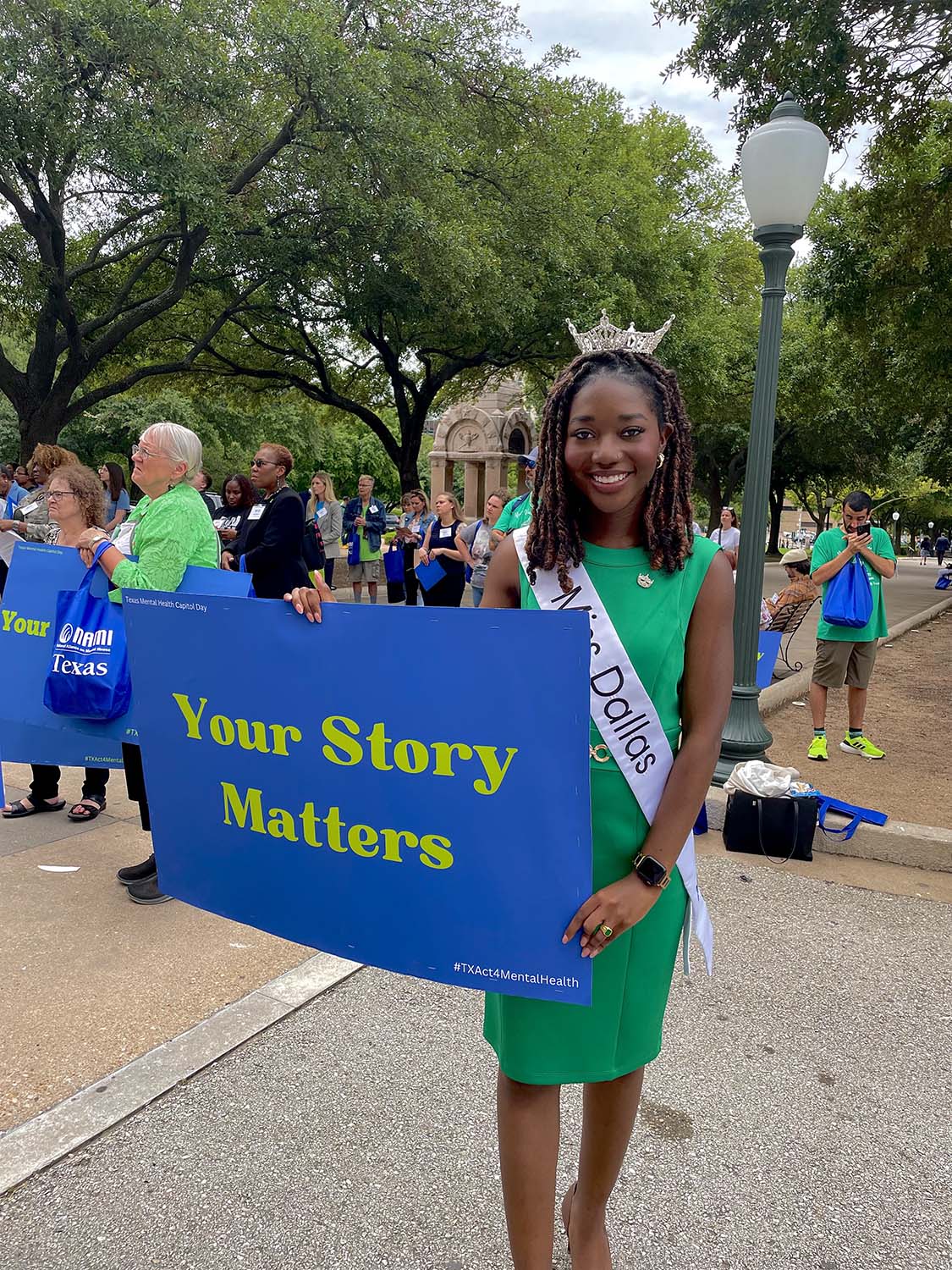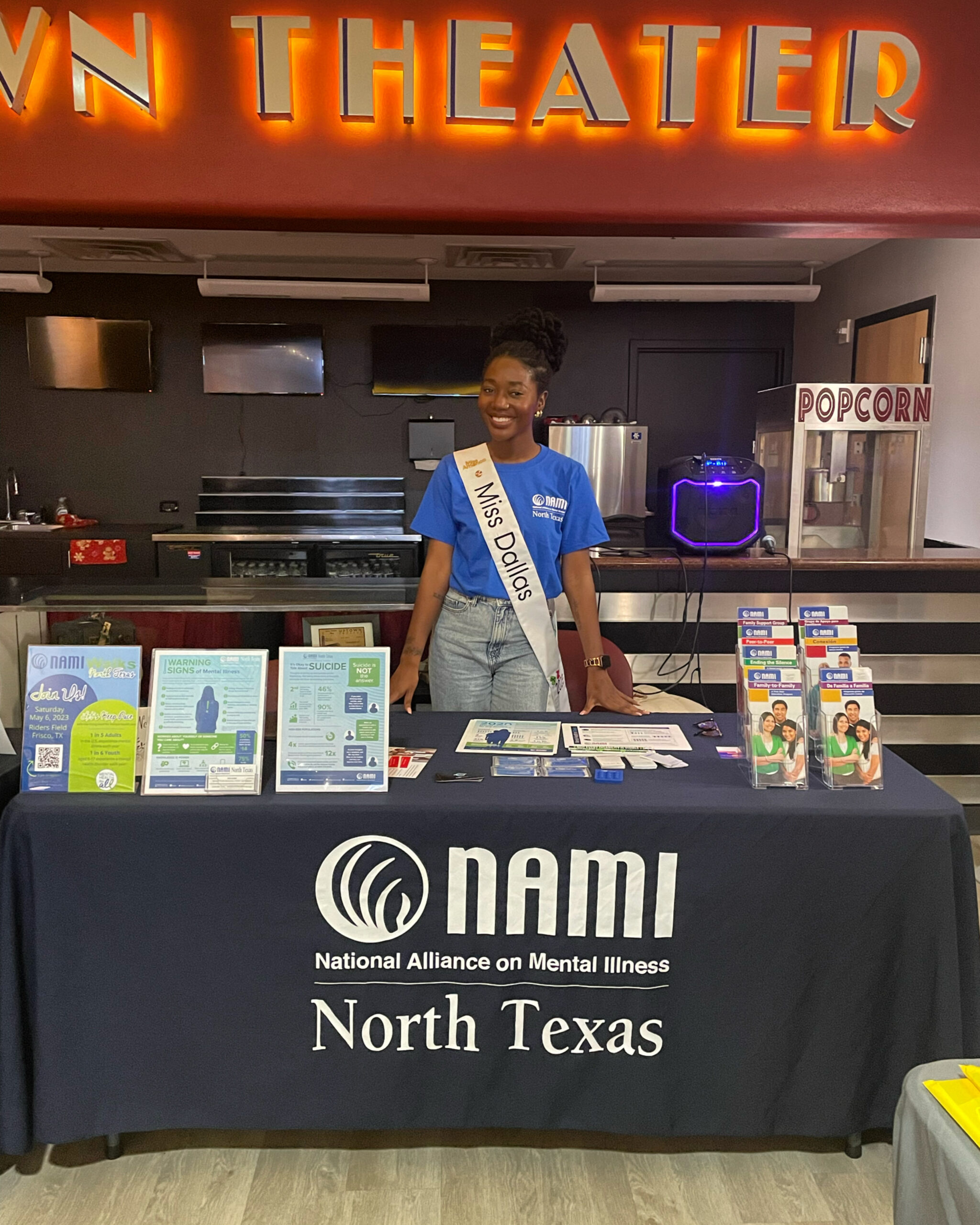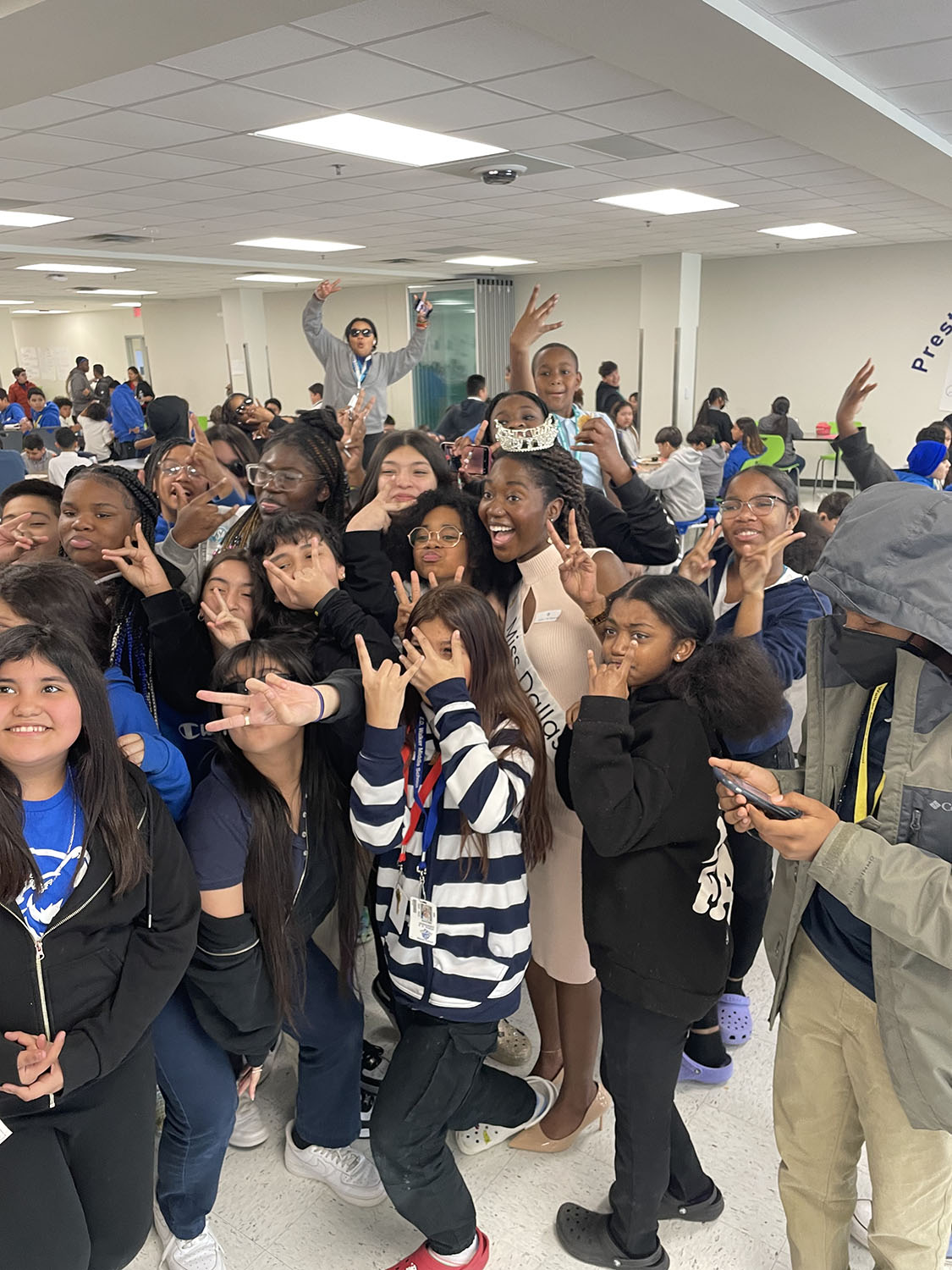Story by Lawson Martin. Photos Provided by Annette Addo-Yobo.

Annette was born in Ghana and grew up in the United States and Canada. In 2022, she became a U.S. citizen. Around that time, she saw a TikTok video of Averie Bishop, the first Asian American woman to win Miss Texas, and she says this inspired her to sign up to compete in more pageants.
Annette went on to win Miss Dallas 2023, becoming only the third Black woman to do so in the Miss Dallas Park Cities organization. Winning this title gave her a platform to speak out on issues that mean the most to her – providing resources for at-risk youth and mental health.
Years before winning Miss Dallas 2023, Annette went through years of resilience that required her to place others ahead of herself. While she was a student at UTD, her mother developed Lewy body dementia, a rare, incurable, progressive disease. She says her family didn’t know her mother’s diagnosis at the time of her illness.

Annette’s mother passed away at 51 years old.
“We didn’t find out what she had until she passed away, and so for seven years, it was just watching this chronic disease take over her life,” she says.
According to Annette, this experience taught her to be resilient because she had to be a caretaker for her mom and her brother, who is on the spectrum, all while balancing being a full-time college student, working a part-time job, and various leadership opportunities in organizations.
“It was really challenging, but prepared me a lot for life,” she says. “It really helped me be more empathetic toward other people’s situations.”
Annette’s younger brother has autism, which has been a learning experience for her and her family. Annette says when she was born in Ghana, autism wasn’t talked about much.
“When my brother got diagnosed with autism when I was about six or seven years old, that was a huge learning curve for me, but also my parents because they were first having to learn what autism was and find what resources were out there,” she says.
Because Annette’s brother was nonverbal, Annette says she was the victim of a lot of bullying at a young age as she stuck up for her brother.
“Having to deal with the brunt of that while also trying to be an advocate for my brother at such a young age was really tough,” she says. “But instead of letting that define me, I decided this needs to be talked about. People need to hear what it’s like to be a caretaker or to be a family member of a person on the spectrum. And to learn that autism doesn’t have a look.”
Annette believes autism is a condition that many people don’t fully understand.
“(Autism) doesn’t have a defining characteristic, per se. Like yeah, there are behaviors that are characteristics of autism, but it’s not always the same for all people,” she says. “Two people could have the same diagnosis on the spectrum and have two completely different ways of presenting themselves.”
Annette’s life experiences have given her a platform to speak about mental health, too. She says she started noticing her symptoms of depression when she was 16 years old.
Her battle with depression intensified when she got to college.
“Symptoms from high school were now compounded by family issues like my mom not being well and the challenges of helping my brother,” she says.

Annette could recognize her symptoms of depression and better understand them through classes she took at UTD’s School of Behavioral and Brain Sciences. She was then able to get a formal diagnosis of depression at 24 years old when she was in graduate school at Sam Houston State University.
Annette is now using her Miss Dallas platform to raise awareness and educate the public about mental health. As Miss Dallas 2023, Annette has partnered with the National Alliance on Mental Illness as a state ambassador and North Texas volunteer. Through this, she has gone into schools and talked to students about mental health, connecting them with NAMI’s resources. She’s spoken to nonprofits and small businesses about mental health as well.
“Having to talk about my story and sharing that with others has helped me to advocate for people who are going through something similar but maybe don’t have the platform that I have to share their story,” she says.

When she’s not volunteering, Annette is a clinical research coordinator at UT Southwestern Medical Center, where she manages a clinical trial in their outpatient psychiatry department.
Annette recently got the chance to compete in the Miss Texas Scholarship Pageant in June. She placed in the top 10 and won $5,000 in scholarships from awards she won throughout the competition. A significant achievement for her during this competition was winning “overall private interview,” meaning she had the highest-scoring interview in the class of almost 60 women competing.
“It was an awesome experience getting to share the work I’ve done as Miss Dallas and why I’d be the best Miss Texas,” she says. “Just because I didn’t win doesn’t mean the work stops or that we’re done here.”

What’s next for Annette? She decided to apply to law school and plans to study family law to become an advocate for young people in the juvenile justice system. She will also be starting her MBA at Lamary University this fall.
She says during her master’s program, she got to work with children with severe mental illness, many of whom were on the path toward youth incarceration.
“I just recognized how flawed the system was with the difficulty in access to good quality legal representation, but also the lack of understanding with mental health and how it affects behavior,” she says.
Annette says she recognized many of these behaviors as a “cry for help.”
“There’s a statistic out there that between 60 and 80 percent of incarcerated youth have a diagnosable mental illness,” she says. “And so my goal with going into the juvenile justice system is to change that narrative to provide them with the care and resources they need so that when they get out, they can stay out and become successful adults.”
Annette also plans on returning to compete in pageants next year.
“I love doing this. I love getting support from my community and being a part of an organization that empowers and champions women,” she says.
Sign up with your email address to receive good stories, events, and volunteer opportunities in your inbox.